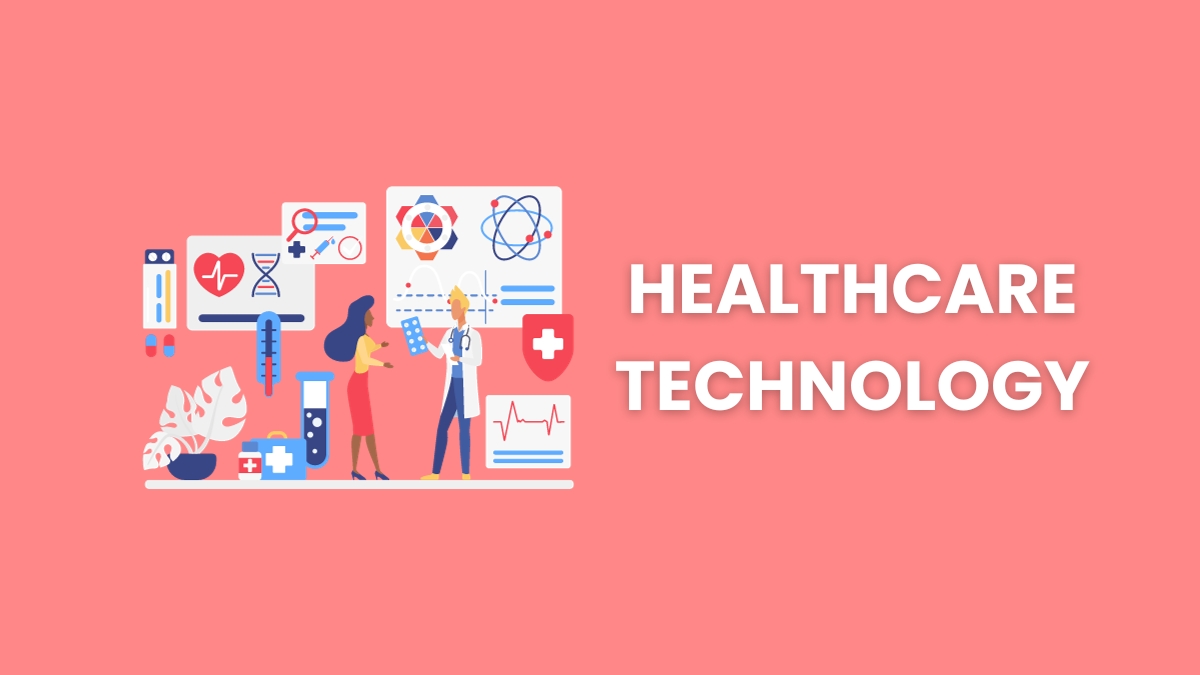7 Healthcare Technology Must-Haves for 2023 and Beyond

For several decades now, technology has become a driving force that shapes the way we receive and deliver medical services. As we enter 2023 and beyond, the healthcare industry is poised for a technological revolution that promises to enhance patient care, streamline operations, and improve overall health outcomes.
In this article, we’ll delve into seven healthcare technology must-haves for the year 2023 and beyond. These innovations are changing the face of healthcare in remarkable ways. So, fasten your seatbelts as we embark on this exciting journey into the future of healthcare technology.
- Telehealth and Virtual Care
- Artificial Intelligence (AI) and Machine Learning
- Blockchain for Healthcare
- Internet of Things (IoT) in Healthcare
- Robotic Process Automation (RPA)
- Precision Medicine
- 3D Printing in Healthcare
These seven technologies are at the forefront of a healthcare revolution that will impact patients, healthcare providers, and the industry as a whole. Now, let’s dive deeper into each of these must-haves and explore the transformation they are bringing to healthcare.
Telehealth and Virtual Care

Telehealth and virtual care have been on the rise for several years, but the COVID-19 pandemic accelerated their adoption like never before. In 2023, we can expect even more innovation in this space. With the increasing prevalence of 5G networks, improved video conferencing, and remote patient monitoring, telehealth will become more immersive and widely accessible.
The benefits are clear: reduced travel time for patients, increased access to healthcare in underserved areas, and greater convenience. Expect to see AI-driven virtual assistants, more specialized telehealth platforms, and virtual reality (VR) applications for healthcare consultations.
Artificial Intelligence (AI) and Machine Learning
AI and machine learning are transforming healthcare by enabling predictive analytics, personalizing treatment plans, and enhancing diagnostics. AI-powered systems can sift through vast amounts of patient data, detect patterns, and help clinicians make informed decisions. In radiology, AI can improve the accuracy of image interpretation, while chatbots are becoming more adept at answering patient queries and even performing preliminary symptom assessments.
AI-driven drug discovery is another exciting frontier, with algorithms capable of identifying potential drug candidates faster and more accurately than ever before. In 2023, expect the AI healthcare ecosystem to expand even further.
Blockchain for Healthcare
Blockchain technology offers a secure and transparent way to manage healthcare data, from electronic health records to drug supply chains. Patient privacy and data security have long been critical concerns in healthcare, and blockchain is poised to address these issues head-on. Patients will have more control over who accesses their data, while healthcare providers can securely and efficiently share information.
In the pharmaceutical industry, blockchain can help prevent counterfeit drugs from entering the supply chain, ensuring that patients receive genuine medications. As blockchain technology matures, we’ll see more widespread adoption within the healthcare sector.
Internet of Things (IoT) in Healthcare
IoT is transforming healthcare by connecting devices and sensors to the internet, allowing for remote monitoring and data collection. Wearable devices, such as fitness trackers and smartwatches, are already common in healthcare, but the IoT’s potential goes far beyond personal wellness.
In 2023, expect to see IoT devices used to monitor patients with chronic conditions, track vital signs, and detect early warning signs of health issues. Healthcare facilities will also use IoT to manage equipment maintenance, streamline inventory control, and enhance patient tracking. The IoT is a game-changer in healthcare, offering both cost-saving and patient care benefits.
Robotic Process Automation (RPA)
Robotic Process Automation is streamlining administrative and repetitive tasks in healthcare, freeing up staff to focus on patient care. RPA is being used in claims processing, appointment scheduling, and billing, among other areas. In 2023, RPA will further reduce administrative overhead, increase efficiency, and minimize human error.
With advancements in natural language processing and machine learning, healthcare providers can implement chatbots and virtual assistants to handle routine inquiries and tasks, creating a seamless patient experience.
Precision Medicine
Precision medicine is changing the landscape of treatment by tailoring healthcare to an individual’s genetic makeup, environment, and lifestyle. By analyzing a patient’s unique data, healthcare professionals can prescribe personalized treatments with greater efficacy and fewer side effects. Genetic testing, coupled with AI-driven data analysis, is making precision medicine more accessible.
The future of healthcare is moving toward a world where treatments are precisely calibrated for each patient, reducing trial-and-error approaches and the associated costs. This shift will revolutionize disease management, particularly in areas like oncology.
3D Printing in Healthcare
3D printing technology is making waves in the healthcare industry. From creating customized prosthetics to manufacturing patient-specific implants, 3D printing has the potential to revolutionize patient care. In 2023, we can expect to see further advancements in this field, leading to improved surgical planning, shorter recovery times, and enhanced patient outcomes.
The flexibility of 3D printing allows for the creation of complex structures and devices that were previously impossible to produce. This technology will become an integral part of surgical practices and patient care.
Wrapping Up
As we journey into 2023 and beyond, the healthcare industry is set to undergo remarkable transformations. These seven healthcare technology must-haves are at the forefront of this evolution, promising to enhance the way we deliver and receive medical services.
From the widespread adoption of telehealth and virtual care to the power of AI, blockchain, IoT, RPA, precision medicine, and 3D printing, the future of healthcare is one filled with hope and innovation. By embracing these technological advancements, we can look forward to a healthier and more efficient healthcare system that benefits us all.
The healthcare revolution is just beginning, and the possibilities are limitless, ensuring a brighter and more technologically advanced future for all. The future of healthcare is not only exciting; it’s transformative.
